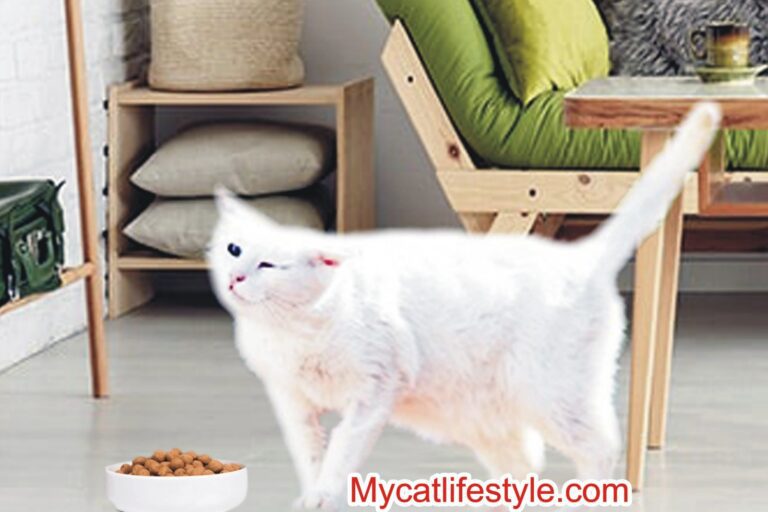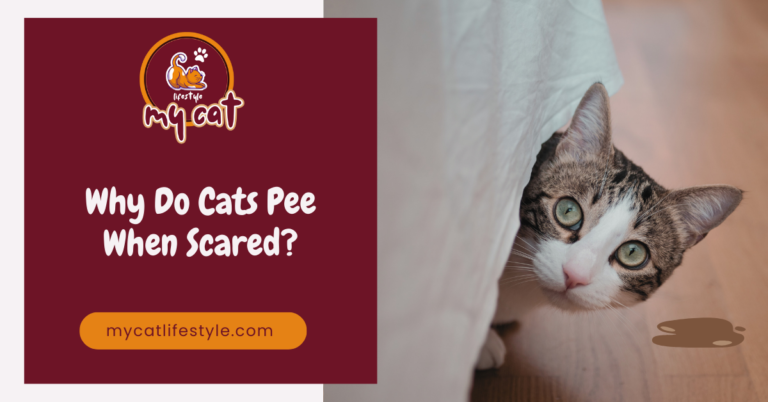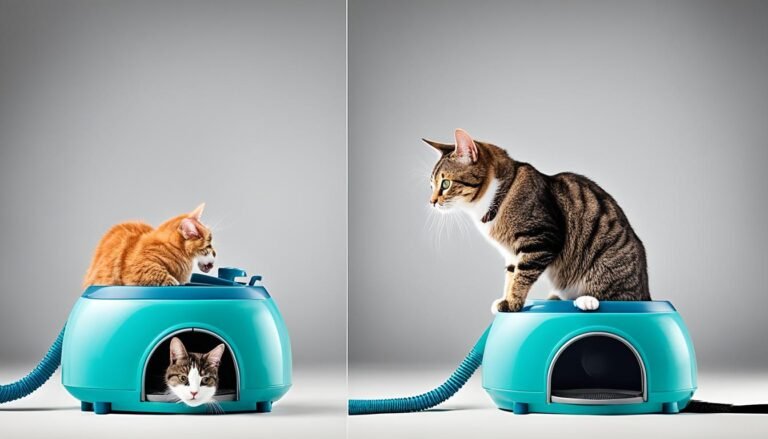Why isn’t my cat feeding her kittens?
Witnessing your cat deliver kittens is a truly heartwarming event. As she brings these precious little furballs into the world, you can’t help but beam with pride at her smooth delivery. Watching her tenderly care for her newborns, cleaning and nursing them, fills your heart with joy.
This ideal scenario is what every cat owner hopes for during such a momentous occasion. However, there are times when complications arise. If you notice that your cat is not feeding her kittens, it’s understandable to feel concerned. You may wonder why she isn’t nursing them and what steps you should take to address this issue.
Why isn’t my cat feeding her kittens?
Cats possess an inherent instinct to nurture their offspring. Typically, a mother cat will swiftly remove the birth sac, sever the umbilical cord, and meticulously clean her kittens. After ensuring they are comfortable, she will encourage them to nurse.
When a cat refuses to nurse her young, it’s a sign that something may be amiss with either the mother or her kittens. Investigating the root cause is essential to aid the mother and her litter.
Illness or Fatigue
If your mother cat is unwell or overly tired, she may not have the strength to nurse. Cats prioritize their survival over nurturing instincts. She will likely focus on her health over her kittens if faced with a choice. This may be difficult to understand since human parents often risk everything for their children.
The demands of birthing and nursing are considerable, depleting the mother’s energy and nutritional reserves. Health issues can further drain her ability to care for her kittens. Additionally, a strenuous birth or a particularly large litter can exhaust her, possibly leading to delays in nursing as she recovers.
Look for symptoms of illness in your mother cat, such as fatigue, loss of appetite, fever, vomiting, or diarrhea.
Kitten Rejection
Rejection of kittens by the mother means she will not nurse or care for them. She might isolate them or relocate them away from her nesting area. Rejection can occur immediately post-birth or after some initial care, affecting one, several, or all kittens. Reasons can vary, including the mother’s youth or health issues among the kittens.
Malnutrition
Adequate nutrition is crucial for a nursing mother. She should be fed a diet rich in nutrients, such as kitten formula supplemented with tuna or chicken, especially if her appetite is low. Begin this diet during her pregnancy and continue it while nursing, increasing the quantity as needed.
Stress
Stress can impede milk production and affect a cat’s ability to care for her kittens. Factors like excessive human interaction, noisy environments, or the presence of other pets can heighten stress. It’s vital to minimize disturbances to help her maintain calm.
Mastitis
Mastitis, an infection of the mammary gland, causes significant discomfort and can hinder nursing. It is characterized by swollen, hot, and possibly discharging nipples. Veterinary intervention is necessary for treatment.
Sick or Deformed Kittens
In nature, a mother cat might reject sick or deformed kittens, focusing her resources on those with better survival chances. This may seem harsh, but it is a survival mechanism.
Too Many Kittens
If a mother has too many kittens, she may be unable to produce sufficient milk for all. In such cases, she might stop nursing the weaker ones to prevent all from starving.
Weaning
Cats begin weaning their kittens around 3 to 4 weeks of age. This process gradually reduces nursing frequency, and she may even begin to discourage them actively as they grow older.
By understanding these behaviors and conditions, you can better support your cat through her motherhood journey, ensuring the health and well-being of both her and her kittens.
How to get my cat to feed her kittens?
In some scenarios, it’s possible to encourage your cat to nurse her kittens. If she is unable or unwilling to do so, however, you’ll need to intervene and take over the care of the kittens.
Vet Visit
If your mother cat isn’t nursing or you suspect the kittens aren’t receiving enough milk, the first action should be a visit to the veterinarian.
Taking the mother and all her kittens for a thorough examination is crucial. The vet can assess the mother for conditions like illness, mastitis, or nutritional deficiencies and check the kittens for health issues.
Mastitis
If the mother cat is suffering from mastitis, she might avoid nursing due to pain, even though she is physically capable of doing so. The vet may prescribe antibiotics to treat the infection, which are safe for the kittens during nursing.
Additionally, applying warm compresses or cabbage leaves can alleviate symptoms. It may be necessary to express the glands to relieve pressure manually. If the cat can nurse post-treatment, allow her to do so. If she continues to refuse, you will need to feed the kittens yourself.
Stress
Stress can significantly impact a cat’s ability to nurse. To reduce stress, ensure the mother has a quiet, private space with her kittens, ideally in a room with a closed door.
Limit your interaction with the kittens to essential care during the first two weeks to help the mother adapt without overwhelming her. If other pets are present, they should not have access to the kittens’ area.
Proper Diet
Maintaining a nutritious diet for the nursing mother is essential. She may need up to four times her usual food intake.
Feed her three to four times a day, and consider leaving dry food available for her to graze on between meals and regular wet food meals. This approach allows her to eat according to her hunger levels.
Sharing the Responsibility
If the mother cat has too many kittens to nurse effectively, you might need to assist her. Allow her to nurse as many as possible and supplement with kitten formula.
If she refuses to nurse some of the kittens, you must take complete responsibility for feeding those kittens. Early supplementation can sometimes prevent the mother from ceasing to nurse entirely.
Caring for Kittens
If you find yourself in charge of kitten care, keeping them safe, well-fed, and warm is crucial. Kittens typically need to be fed every 1-3 hours during their first few weeks. Each kitten will generally consume about 1 teaspoon of formula per feeding.
Use a kitten bottle or a medicine syringe for feeding, especially if they are reluctant to suckle from the bottle. Post-feeding, gently wipe their bottoms with a warm washcloth to stimulate urination and defecation, mimicking the mother’s grooming behavior.
Frequently Asking Questions
1. What do I do if my cat doesn’t want to feed her kittens?
If your cat is reluctant to nurse her kittens, consult a veterinarian to ensure no health issues such as illness or mastitis. If stress or environmental factors are the cause, provide a quiet, secluded area for her and the kittens. If these methods do not work, you may need to feed the kittens using a kitten formula and bottle.
2. Why is my cat ignoring her newborn kittens?
A mother cat might ignore her kittens for several reasons, including stress, discomfort, or illness. It’s also possible she’s suffering from mastitis or other health issues that make nursing painful or draining. A quiet environment and medical check-up can help determine the cause and appropriate actions.
3. How do you tell if a mother cat rejects her kittens?
Signs of rejection include the mother cat not cleaning, feeding, or staying near her kittens. She may physically move away from them or seem indifferent to their presence. If you observe these behaviours, it’s crucial to intervene to ensure the kittens’ survival.
4. How do I get my cat to feed her newborn kittens?
Encourage your cat to feed her kittens by creating a calm and comfortable nursing environment. This can involve setting up a secluded area with minimal noise and disturbances. Ensure she has a nutritious diet to support lactation. If she refuses to nurse, consult a vet for potential health issues and prepare to hand-feed the kittens if necessary.






